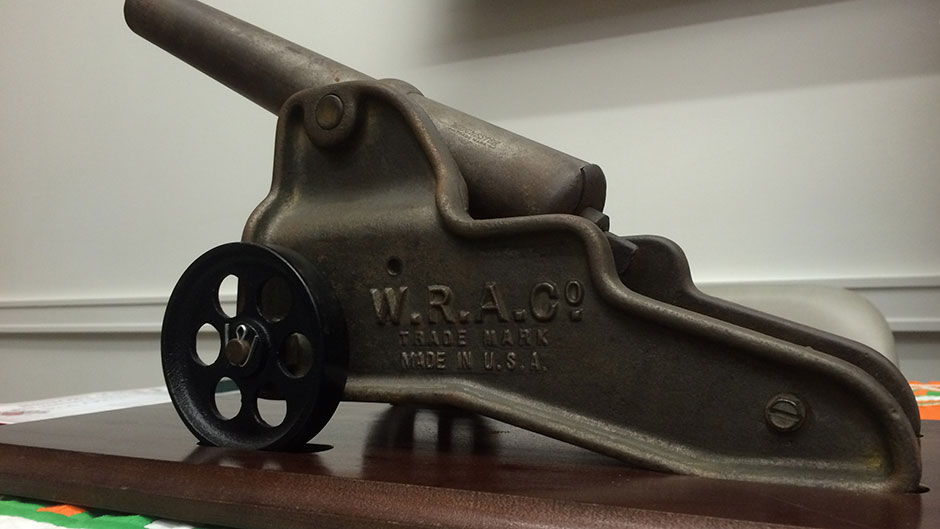Nearly 100 University of Miami students, faculty, staff, alumni, and invited guests joined Iron Arrow and Student Government in the Student Activities Center Thursday night to hear from four prominent members of the University community.
The event, titled “My U,” was an opportunity for attendees to hear stories and learn the history of UM from those who created it. Iron Arrow has hosted similar events in the past as a way to reach out to the UM community.
“Even people who have been on this campus for many years don’t know the stories behind some of our most treasured traditions,” said Caitlin Giles, a second-year law student at the University of Miami School of Law and chief of Iron Arrow. “This event provided an opportunity for multiple generations of ‘Canes to walk away feeling more connected to the University and to each other.”
The panel, moderated by Jose A. Hernandez-Solaun, M.B.A. ‘05, was a who’s who of ‘Canes history.
Jonathan Vilma, B.B.A. ‘04, a member of the UM Sports Hall of Fame Spring 2015 class, was a linebacker on the 2001 national championship football team and is owner of Brother Jimmy’s BBQ.
Norm Parsons, coach of the 1977 and 1978 national championship women’s golf teams and former faculty advisor for Iron Arrow, served as executive director of the Department of Wellness and Recreation at UM from 1972 to 2014.
Liz Rodriguez, B.S. ’85, J.D. ‘89, the first female chief of Iron Arrow, is a partner at Ford & Harrison LLP specializing in self-employment law.
John Routh, the first man behind the Miami Maniac and inventor of the C-A-N-E-S spellout, is the executive director of the UM Sports Hall of Fame.
“I hope people took away how great it is to be at such a young university with a living history,” Rodriguez said in her Iron Arrow vest – women were initially given vests when the tribe first began admitting women in 1985. “We don’t have to read about our history in a book; we get to be a part of it.”
The panelists opened the discussion by sharing the time they knew they were in love with the University of Miami. For Parsons, it was after he was recruited by William R. Butler, vice president for student affairs emeritus, to leave the University of Michigan. “It didn’t take much convincing,” Parsons admitted to the audience.
When asked about the moment they were tapped into the Tribe, Routh remembered his tapping vividly. “The arrow hit my chest so hard I was knocked back into my chair and my head actually hit the wall,” he said. “I’ve heard the tappings are a bit tamer now.”
But the panelists spent much of the evening reflecting on how the University of Miami had a lasting impression on their lives.
Vilma, a first round draft pick in the National Football League, didn’t realize how revered The U was within the league. “So many of my teammates wished they were ‘Canes,” he said.
Parsons recalled how the University community rallied together when Hurricane Andrew devastated the campus in the heart of freshman move-in in 1992, forcing families to take shelter in the University’s residential colleges. “I’ll never forget the families I met as a faculty master in Eaton Residential College and the support we offered each other during that tough time.”
Questions from the audience centered on the changes the University has seen over time. When asked what was different and what remains the same, Parsons nodded to University leadership.
Parsons recalled, “Although the makeup of the student body has changed dramatically over the years, University of Miami administrators have always focused on developing all students into well-rounded individuals in all facets of their lives.”
Laura Kohn-Wood, a member of the faculty at the School of Education, was tapped into the Tribe earlier in March and used this event as a learning experience as part of her initiation process.
“I’m amazed at the level of commitment so many people have to UM,” she said. “Learning that Bowman Foster Ashe, the first president of the University, used his own money to keep Miami open during its infancy in the heart of the Great Depression is truly an inspiration.”
University

Stories About the U

John Routh, executive director of the UM Sports Hall of Fame brought the original Touchdown Tommie cannon, used from 1933 to 2003, to the event. Sigma Chi Fraternity fires the cannon after each Hurricane score at a football game.
